- Home
- Neal Asher
The Gabble p-13 Page 6
The Gabble p-13 Read online
Page 6
Hendricks’s head came up and he stared at Kelly. Kelly returned the look then pointed up the mountain. Just then Ansel heard a scrambling on the stair behind him. He dived and rolled, snatching up his thin-gun as he went past, turned and fired. The Golem was up on the edge. It seemed a fairly normal man with a shaven head, and carried a weapon similar to the one Hendricks held. Ansel’s first shot hit it in the chest as it stepped forward. The explosion ripped a hole to expose gleaming ribs underneath. It tried to aim at him, but he hit it again and again.
Abruptly pulsed-energy fire hit it from Hendricks’s weapon. The Golem staggered then leant into the fusillade. Its face became a blackened pit and syntheflesh fell burning from its arm. Its weapon was trashed and it threw it aside, but it continued to advance. All Ansel could do was keep firing, even though he knew his and the monitor’s combined fire would not be enough.
‘Get down, assassin!’ Hendricks yelled.
What the hell for?
Instinct took over before Ansel could think of an answer to that question. All fire ceased and the Golem was running towards them. Suddenly there came a roar and blue fire speared above Ansel. The heat of it seared his back and he saw the Golem take that fire full on. It was stripped down to its metal chassis in an instant. It leant into flame then started to bend and distort. Abruptly it was coming apart and the blast picked it up and flung it over the edge. When the thruster motor cut out Ansel stood and glanced round at Hendricks.
‘AG was out,’ said the monitor. ‘Not the thrusters.’ He dropped the remote control he held, but managed to holster his pulse-gun before he fainted.
Ansel walked over and gazed down at the monitor. He owed the man. He turned and looked at Kelly. So easy now to complete his mission. Feeling an unaccustomed discomfort he became aware that Erlin was studying him.
‘Come to kill me?’ Kelly managed.
‘Not now,’ said Ansel, holstering his thin-gun.
‘Hendricks wouldn’t. Too. . moral.’
Ansel understood in an instant.
Kelly limped forward and held out the book to him. Ansel could not understand how the man was not screaming. His clothes were stained horribly and he must be losing the flesh of his body just as he was losing the flesh on his face.
‘Take it,’ Kelly said.
Ansel took the book and tucked it under his arm.
‘Are you a … good friend?’ Kelly asked, and turned his back on him.
‘I am,’ said Ansel, and he drew his thin-gun and brought it up. Erlin’s protest came half a second after the dull concussion that took the top off Kelly’s head.
‘Of course,’ said Hendricks, a sneer in his voice, ‘in those first thirty-seven years THC offered more than generous wages and free symbiont implantation so the colonists could partake of Fores’s bounty. When the first colonists died in ways too horrible to imagine THC came storming to the rescue: “Look,” they said, “we have this drug that seems, if taken in regular doses, to prevent the symbiont attacking its host. Admittedly it is expensive.” Work it out for yourself, assassin.’
As he engaged AG and lifted it out of the valley, Ansel stared out of the screen of Kelly’s shuttle. He knew how the Company operated, since he had spearheaded some nasty operations himself. But he had never expected to be on the receiving end. Forty years of loyal service and they had done this to him.
Hendricks said, ‘The original colonist miners here were virtual slaves to the Company. In the end they were working the mines for one drug patch a month. Kelly’s great-grandfather wrote all this down, and took signed statements from over five hundred miners. Kelly’s deposition told us this, but we’d yet to see those statements.’ Hendricks, who sat in the navigator’s chair, rested his hand on the thick book on his lap.
‘Bastards,’ said Ansel, his voice flat.
‘I’d imagine that for your service, in thirty-seven years the Company would have paid you in drug patches. After Kelly’s deposition you became inconvenient, what with you possessing a new symbiont the precise twin of those here — proof that no mutation had taken place, that producing a killer symbiont had been precisely the Company’s intention.’
Erlin leant forwards. She had been silent for a long while after he had killed Kelly, but that silence had ended when they reached Kelly’s shuttle.
‘He called you a good friend,’ she had said.
‘I know what he meant,’ Ansel had replied.
‘Not entirely I think.’
‘Then explain it to me.’
‘They live with certainties here, Ansel. They know their lives will be short and will end in horrifying agony unless they kill themselves. They have a celebration here called The Leaving.
When a colonist feels his or her symbiont changing — usually signalled by stomach cramps — they throw a wild party. When the individual concerned is so drunk on cornul liquor he loses consciousness a good friend will cut his throat.’
Ansel swallowed drily as he engaged the thrusters. What of his prospects now? The Company would be unlikely to provide him with the drug the miners had used. All they would supply was a quick death.
‘You are evidence. You’ll come with us to Earth Central, and after this book is presented you’ll stand in court and give your statement. THC will pay and they’ll pay heavily,’ said Hendricks.
‘I’ll come,’ said Ansel.
Garp and Geronamid
The grey-bearded park labourer reminded Salind of Earth and autumn, though the man was not raking up leaves. It was treelfall on Banjer — a season with no real Terran equivalent — and the snakish creatures squirming from the pox of holes in the banoaks were dying. Having raked the fallen into slightly shifting drifts, the man began forking the spaghetti tangle into his wheelbarrow.
‘I’ll be damned,’ said Salind, initiating the ‘save’ facility in Argus.
He watched the man for a while longer, then hoisted his rucksack more securely onto his shoulders before moving on. Shortly he came to where a black and twisted banoak had spilled from its hollow branches a thick crop of treels across the path. The banoak itself reminded him of a baobab, though he vaguely recollected it was not in fact a tree, being more akin to a tube worm. The parasitic treels were black and grey, and on average half a metre long. With their narrow heads and discshaped feeding mouths, they appeared more like lampreys than the eels after which they were named. Salind subvocalized a question and Argus, his internal augmentation, replied in its lecturing tone:
Because its life cycle is utterly confined to the soft tissues and hollow branches of the banoak, it will attempt to feed on any soft tissue with which it comes into contact. Avoidance is recommended.
Salind looked askance at the writhing mass as he stepped off the path and onto the spherule grass to bypass it.
‘Why do they die?’ he asked.
There came a pause from Argus as it accessed the relevant files.
A poison from the aforementioned soft tissues accumulates in the creatures and kills them off in their fifth year. Shall I continue?
‘Might as well,’ said Salind. ‘I don’t suppose Garp’s there yet.’
As I mentioned, the treel’s entire life cycle is confined to the interior of the banoak. There it feeds on the soft tissues of the polychaete body, mates and lays its eggs. By their fifth year the treels die from a cumulative poison in the polychaete’s flesh. It was first thought the poison served no other purpose than to rid the banoak creature of this parasite. It is now known that the treel’s relationship with its host is mutualistic rather than parasitic. The treels, as well as feeding on the banoak, protect it from predation. Creatures that feed on the banoak inevitably ingest treels and can sicken and die from the poison concentrated inside them.
‘They harvest them, don’t they?’ said Salind, his attention drawn to the large tanker parked under some distant banoaks. He could hear the cavitating roar of a vacuum pump and see another park labourer sucking up the creatures with a wide-ribbed hose.
&n
bsp; The poison accumulates in their skin. For humans that substance works as a narcotic and mild hallucinogen. The treels are mulched, pressed and dried and what remains is mostly skin.
They make a tea from it here.
‘I guess I’ll have to give that a try then,’ said Salind, though he did not particularly relish the prospect.
The tea is as addictive as nicotine. Most people here drink it.
‘Then I’ll take a detoxicant course afterwards. My audience will want to know what it’s like.’
At the centre of the park stood a monolithic quartz crystal into whose lattices had been recorded the names and personal histories of the thousands who had died during the civil war here a century earlier. The deeply translucent crystal ran in its depths holograms taken randomly from those personal histories. Positioned all around it were seats for spectators, though they were unoccupied today and, studying the figure standing with his back to the crystal, Salind could understand why.
This man’s clothing resembled an antique acceleration suit with its webwork of veins sandwiched in metallic fabric. Pipes were also visible at his joints and curved up from the neck ring, and fluid vessels were affixed here and there on the suit’s surface. This clothing was not of great note though. Others dressed more exotically and few would so much as blink an eye at them. However, this man seemed ill: his face greyish and his eyes containing a sickly yellow tint.
When he turned to gaze up at the crystal, it became evident that the tubes from the neck ring entered the base of his skull. As Salind drew closer he noted fingertips frayed down to the bone, eye irrigators at the man’s temples, skull exposed through holes in shaven scalp. Closer still and he caught the first whiff of putrefaction. For what Garp suffered there was no cure — him being dead.
As soon as the Tarjen Network picked up on the story, Salind knew that it had to be his. It was a perfect footnote to the big story on Banjer at the moment: the imminent arrival of the Arbiter of Transition, the awesome AI Geronamid, and subsumption of this world into the Polity.
Since the civil war, during which a theocracy had been bloodily usurped then replaced by more conventional government, there had been plenty of murders solved, or not, by the usual methods. However, there had not been a reification of a murder victim in a hundred years.
When the strange cult of Anubis Arisen governed Banjer, every viable murder victim had been reified and sent after his murderer. The victim’s dead brain was decoded and the essential mind and memory downloaded into an augmentation. Cybermotors at the joints moved the body, which was partially preserved by chemicals. Obviously more complex than this, the system utilized, in some reifs, surviving brain tissue, and historians argued that such were still alive.
Others argued that reifs possessed self-determination and even whilst running fully on the augmentation were AI. For a century the whole argument had been moot, that is, until Garp came on the scene.
Salind had scanned the files at stopovers while en route to Banjer. Garp had been an inspector in the Banjer police force. The last five years of his life had been spent trying to convict a woman by the name of Deleen Soper, who had allegedly made a fortune manufacturing a drug called praist, somewhere on this world. During those five years he had made enough headway to become an annoyance to the Tronad — a criminal organization reputed to be close to seizing power on Banjer and of which Soper was, again allegedly, the head. Several ensuing attempts on his life impelled him to make a will specifying that should he die within a certain period he wanted to be reified, and for this purpose transferred funds to what was left of the Church of Anubis Arisen. Shortly after doing so, he revealed himself to be a praist addict going into terminal psychosis, turned up at the Church’s headquarters, and after presenting the relevant documentation, shot himself through the heart.
‘Hello, I’m Salind. I’m glad you agreed to speak to me.’ Salind held out his hand.
Garp stared at this member for a moment, but made no move to take it. After a clicking gulp deep in his throat he said, ‘I won’t shake your hand. I don’t yet know the strength of the cybermotors in my finger joints, also I shouldn’t think it very pleasant shaking hands with a corpse.’
Salind forced a grin and dropped his arm to his side.
‘Are you recording now?’ Garp asked.
‘I am, and obviously I have a lot of questions to ask you. .’
Garp held up one hideous palm. ‘One moment.’
At his throat he made an adjustment to a recessed control plate. There came a faint hissing sound. When he spoke next his voice was smoother. ‘That’s better. My vocal chords are decaying despite the vascular balm. Airborne bacteria.’
‘An unusual experience, I’d imagine,’ said Salind, feeling foolish.
Garp said nothing for a moment. Salind wondered if he was being given an annoyed look.
Perhaps he was, only Garp’s mummified features revealed nothing.
‘I’m a reif,’ was all he said. And with that he took a handgun from his belt and held it up for Salind to see.
‘Ah.’ Salind held off from putting a call for help through Argus. Banjer being out-Polity for the present, Polity monitors could do nothing, and it would take at least ten minutes for the Tarjen staffers to get to him. Anyway, episodes like this made a story. The weapon — an old station-developed rail-gun — was the sort of thing that carried a twenty-round box and had a range measured in metres rather than kilometres. Salind thought it better suited to a museum.
‘What exactly is that for?’ he asked, keeping his voice level.
‘I’m attached to it. You know that a reif’s only protection under Banjer law is as part of the estate of the deceased? Only property laws apply.’
‘Yes, I knew that. Tell me, why did you choose to be reified?’
‘Because I needed more time than what remained to me to get her.’
‘Ah, I see. You refer to Deleen Soper. Why were you so determined to prosecute her?’
‘Because I was a detective,’ said Garp.
‘I note you use the past tense. You no longer work for the Banjer police?’
‘I do not. I no longer have to get a court order for searches and I no longer have to present cases to a corrupt judiciary. The interesting thing is that I cannot commit a crime either.
You have to be a person to commit a crime.’
Salind watched as Garp hooked the rail-gun back on his utility belt.
‘There’ve been rumours of corruption but none have yet been proven,’ he said. The presence of the gun was making him nervous and undermining his usual smooth technique. Garp pointed towards one of the far entrances of the park and began to stroll in that direction. Salind fell in beside him.
‘Soper has been indicted for drug trafficking four times and for murder three times. Every time the case was brought before the same judge and then thrown out. In any Polity court the evidence would have been sufficient to have her mind-wiped or executed. I checked. She has, to my knowledge, three of the five city judges and most of the Council in her pocket, and that’s only in this city.’
‘Those are serious accusations. What proof do you have?’
‘I had full sensorium recordings of conversations and bribes, documentation, and eighteen witnesses. When I. . died, my files were dumped. Of the witnesses, four went offworld, and seven suffered fatal accidents while I was alive. Two more made official withdrawals of their statements, and the remaining five were hit while I was being reified.’
‘Is Soper implicated in all this?’
Garp looked at Salind. ‘What do you think? There’s no admissible evidence and the judiciary is refusing the investigators permission to investigate.’
‘What then are your intentions?’
Garp remained silent for a moment. He halted at a spill of treels before speaking. ‘I saw the look you gave this gun. It’s not what you think. It’s the only piece of hard evidence I possess.’
He turned and gazed directly at Salind, his eye
irrigators hazing the air around his face with spray. ‘You know, they wiped me out. All my files, even my personal files, were dumped from the system. It was an accident they said. I might well have not existed.’ Garp walked on, crunching treels underfoot.
‘This hard evidence …?’ Salind said, moving round the treel spill.
‘Useless now of course. This weapon had her fingerprints and DNA traces on the handle.
It was found by the body of Aaron Dane. She’d blown off both his legs at the knee before beating him to death with the barrel. And so confident was she in her control of the judiciary, and certain police officials, she didn’t bother to get rid of the evidence. I had it all on record. .’
‘Well, it’ll all change with the arrival of Geronamid. Corruption tends to wither under AI governance.’
Garp made a rough hacking sound. It took a moment for Salind to realize it was a laugh.

 The Bosch: A Novella (Polity Universe)
The Bosch: A Novella (Polity Universe)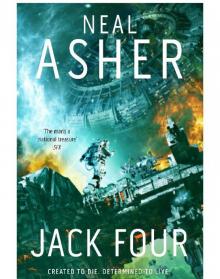 Jack Four
Jack Four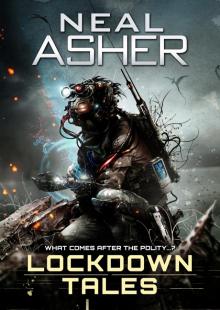 Lockdown Tales
Lockdown Tales The Warship
The Warship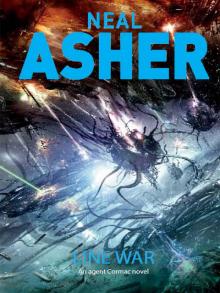 Line War
Line War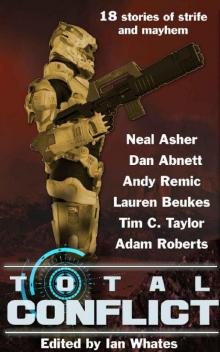 Total Conflict
Total Conflict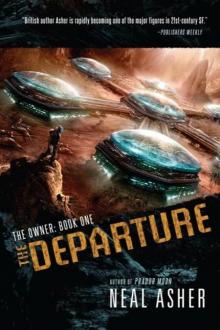 The Departure
The Departure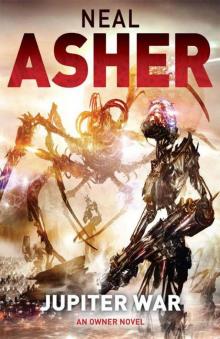 Owner 03 - Jupiter War
Owner 03 - Jupiter War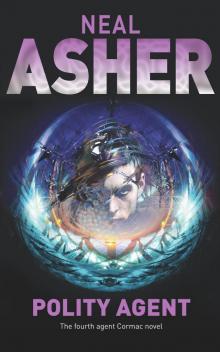 Polity Agent
Polity Agent Prador Moon
Prador Moon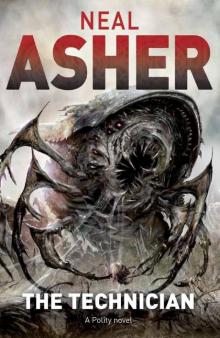 The Technician
The Technician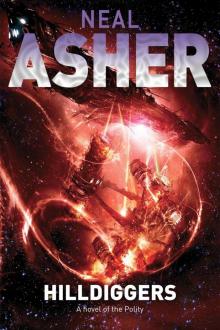 Hilldiggers
Hilldiggers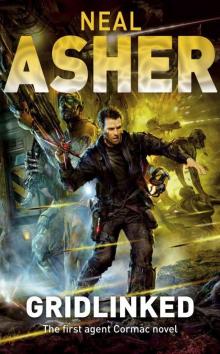 Gridlinked
Gridlinked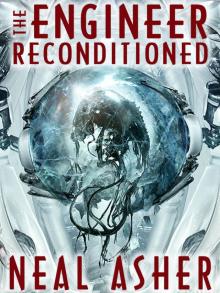 The Engineer ReConditioned
The Engineer ReConditioned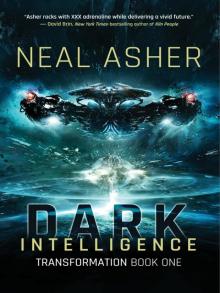 Dark Intelligence
Dark Intelligence The Soldier: Rise of the Jain, Book One
The Soldier: Rise of the Jain, Book One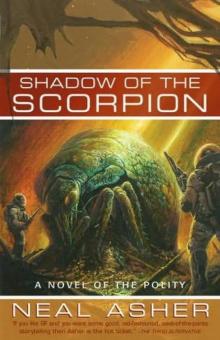 Shadow of the Scorpion p-2
Shadow of the Scorpion p-2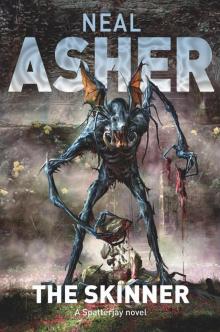 The Skinner
The Skinner The Soldier
The Soldier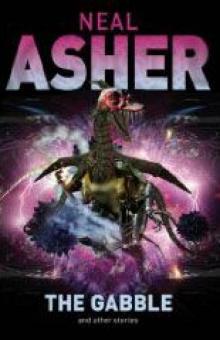 The Gabble p-13
The Gabble p-13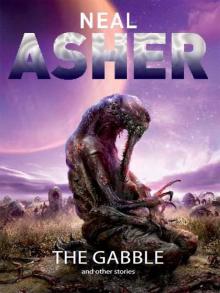 The Gabble and Other Stories
The Gabble and Other Stories The Parasite
The Parasite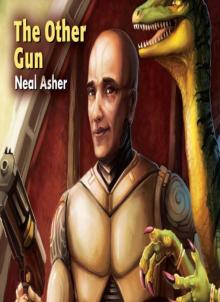 The Other Gun
The Other Gun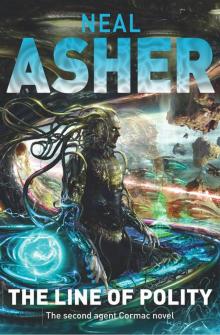 The Line of Polity
The Line of Polity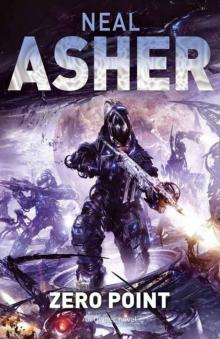 Zero Point (Owner Trilogy 2)
Zero Point (Owner Trilogy 2)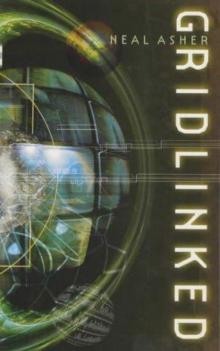 Gridlinked ac-1
Gridlinked ac-1 Prador Moon p-1
Prador Moon p-1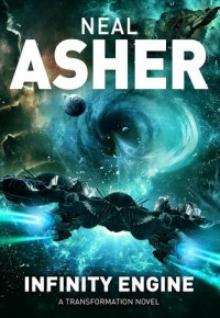 Infinity Engine
Infinity Engine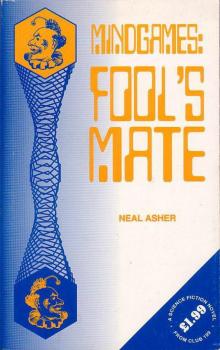 Mindgames: Fool's Mate
Mindgames: Fool's Mate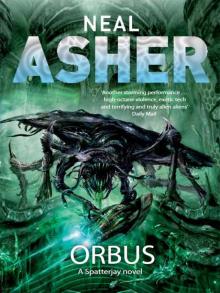 Orbus
Orbus Africa Zero
Africa Zero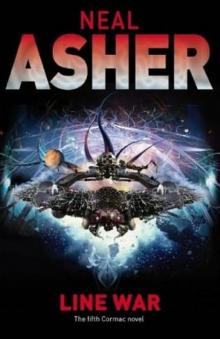 Line War ac-5
Line War ac-5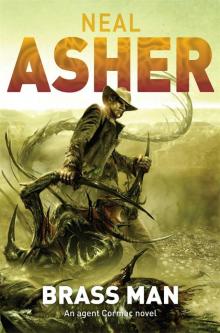 Brass Man
Brass Man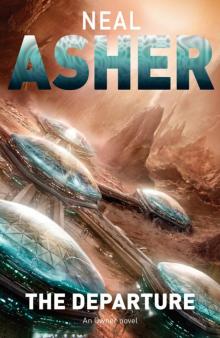 The Departure to-1
The Departure to-1 Cowl
Cowl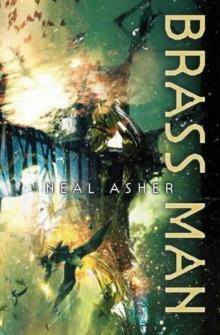 Brass Man ac-3
Brass Man ac-3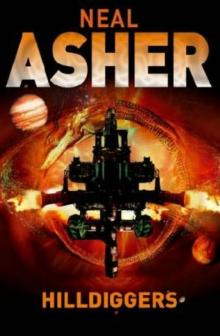 Hilldiggers (polity)
Hilldiggers (polity)![Greg Bear - [Eon Trilogy 1] - Eon (rescan) (v1.0) Read online](http://i1.bookreadfree.com/i2/04/08/greg_bear_-_eon_trilogy_1_-_eon_rescan_v1_0_preview.jpg) Greg Bear - [Eon Trilogy 1] - Eon (rescan) (v1.0)
Greg Bear - [Eon Trilogy 1] - Eon (rescan) (v1.0)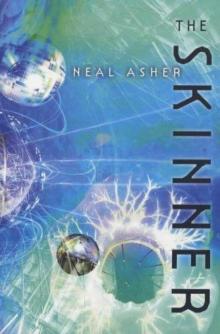 The Skinner s-1
The Skinner s-1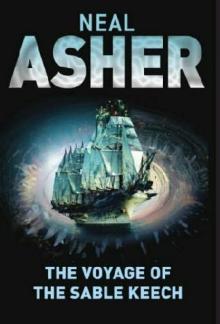 The Voyage of the Sable Keech s-2
The Voyage of the Sable Keech s-2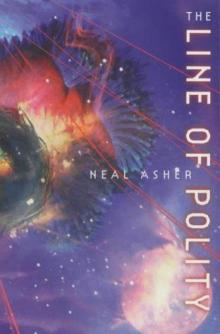 The Line of Polity ac-2
The Line of Polity ac-2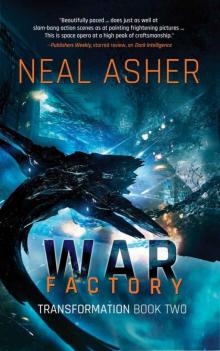 War Factory: Transformations Book Two
War Factory: Transformations Book Two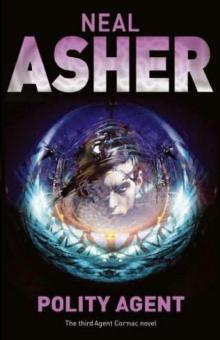 Polity Agent ac-4
Polity Agent ac-4